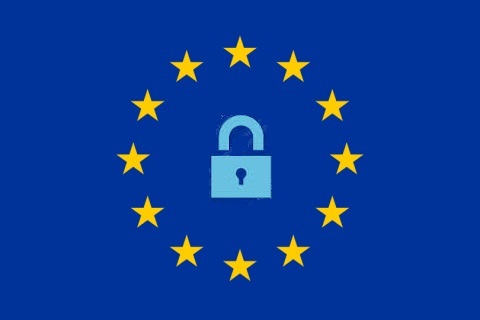Many businesses seriously mishandle customer data and are at risk of falling foul of data protection regulators, according to new research.
Despite Brexit, it is widely believed that UK companies will still need to comply with the GDPR if they are to trade across Europe, as must any U.S. firm trading on the continent.
However, research from Compuware shows most businesses are a far way from being prepared:
· Most businesses have exceptionally poor data management processes in place: 68% of CIOs don’t always know where customer data is, and only half can locate it quickly. 30% can’t guarantee they could find it at all!
· 52% of CIOs indicated it would be difficult to comply with requests to eliminate all of a customer’s data if they exercised their ‘Right to be Forgotten’.
· Most businesses use customer data to test applications, but just 20% ask for explicit consent – this will be a particular problem in complying with the GDPR.
· 43% of these businesses also put customer privacy at risk, as they can’t guarantee that data is depersonalised before it is used in testing.
· With the new EU General Data Protection Regulation (GDPR) finally agreed, 68% of businesses don’t yet have a comprehensive plan in place for how they will respond to its impact.
· The difficulty of compliance with EU data mandates is being exacerbated by growing IT complexity, Agile and DevOps-enabled proliferation of new applications, ongoing collection of more data, and outsourcing.
· To be prepared for GDPR compliance, companies must improve their data governance and test data management capabilities across all platforms—including the mainframe, where the majority of customer data resides.
Factors contributing to the difficulty of EU GDPR compliance include growing IT complexity, the Agile and DevOps-enabled proliferation of new applications, ongoing collection of more data, and IT outsourcing. The overwhelming majority of respondents (63%) admitted that data complexity is one of the biggest hurdles to achieving compliance, whilst a further 53% said that securing and handling customers’ consent for their data to be used would be another major hurdle.
Poor control of the ‘Right to be Forgotten’
The research indicates that businesses are struggling to control their data, which will make it difficult to comply with the ‘Right to be Forgotten’ mandate laid out in the GDPR. Key findings include:
· 68% of respondents said the complexity of modern IT services means they can’t always know where customer data is.
· Over half (53%) said that it is especially difficult to know where all of their test data is.
· Just over half (51%) of CIOs can locate all of an individual’s personal data quickly, whilst nearly a third (30%) admitted they could not guarantee they would be able to do so at all.
· Respondents also said that the use of outsourcers (81%) and mobile technology (63%) is making it even harder to keep track of where customer data resides.
· Nearly half (45%) of respondents said it would take their business a lot of time and resources to comply with a request to show an individual all of the data that the organisation holds on him or her across all of its systems.
· Just over half (52%) would then be able to remove all of that data efficiently should the individual exercise their ‘Right to be Forgotten.’
“To comply with the GDPR, businesses need to keep stricter control of where customer data resides,” said Dr Elizabeth Maxwell, PC.dp, and Technical Director, EMEA, Compuware. “If they don’t have a firm handle on where every copy of customer data resides across all their systems, businesses could lose countless man-hours conducting manual searches for the data of those exercising their ‘Right to be Forgotten.’ Even then, they may not identify every copy, leaving them at risk of non-compliance.”
Testing the boundaries of consent
The research found that 86% of businesses use live customer data to test applications during software development. However, just one in five respondents ask for explicit customer consent for their data to be used in testing, leaving the majority non-compliant with the GDPR. Alarmingly, 43% of those that test applications with live data are further putting customer privacy at risk, as they cannot guarantee that data is depersonalised before it is used.
“Using customer data to test applications is fairly standard practice, but there’s no need or excuse for not depersonalising it first,” continued Dr Elizabeth Maxwell. “Companies that fail to mask data before using it to test applications could soon find themselves slapped with an eye-watering fine from EU regulators. As well as being better for protecting customer privacy, anonymising test data eliminates the need to obtain customers’ explicit consent for it to be used in this way, which over half (53%) of CIOs identified as one of the biggest hurdles in GDPR compliance.”
Commissioned by Compuware and conducted by independent research company Vanson Bourne, the survey was administered to 400 CIOs at large companies covering a cross-section of vertical markets in France, Germany, Italy, Spain, the UK and the U.S.
Source: www.compuware.com

